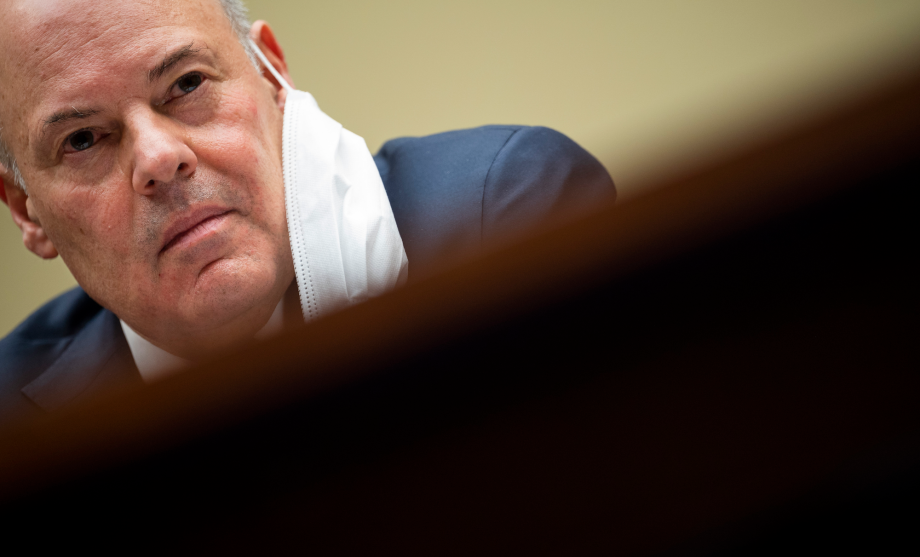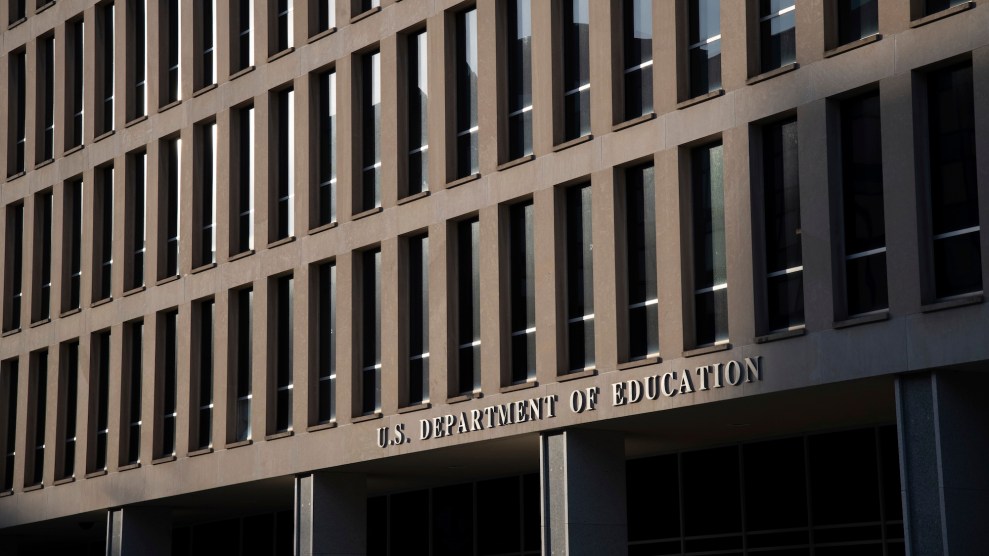
Jim Watson/ZUMA
President Biden on Wednesday announced three nominees to the Postal Service Board of Governors, a move that if confirmed, would tilt the nine-member board in favor of Democrats and could potentially lead to the removal of Postmaster General Louis DeJoy.
DeJoy, a Trump megadonor, has been under intense fire for overseeing a series of controversial changes last year, including the prohibition of overtime work just as demand for mail-in ballots was skyrocketing and directing postal workers to leave late-arriving mail for the next day. Many saw these changes as an attempt to kneecap the organization and disenfranchise voters in the presidential election.
The announcement on Wednesday came on the same day that DeJoy testified before the House where he faced questions on the continued widespread delays plaguing the agency. DeJoy refused to take responsibility for the ongoing delays and instead blamed the agency for being “operationally faulty.” In one moment, when asked how much longer he expected to remain at the helm of the USPS, DeJoy was notably combative.
“Long time,” he shot back. “Get used to it.”
As my colleague Ari Berman noted last month, Biden’s move to fill the vacant board seats and seek more control over the embattled agency would mark a significant step in restoring democracy post-Donald Trump. It also could blunt DeJoy’s efforts to potentially privatize the independent agency.
DeJoy remains in place as postmaster general, promising to unveil major changes after the election that could lay the groundwork for eventual privatization of the postal service, a longtime GOP objective. “It’s like the Supreme Court,” says USPS expert Steve Hutkins, who runs the Save the Post Office blog. “Trump is gone but he left a Republican postal service.”
Since the USPS is an independent agency under the executive branch, Biden can’t directly fire DeJoy, who has no fixed term. That can only be done by the Postal Service Board of Governors. Trump named all six members of the nine-member board, which has a 4–2 GOP majority. But if Biden appoints three new governors, who must be confirmed by the Senate, to existing vacancies that would give Democrats a 5–4 majority that could oust DeJoy and roll back his changes to the agency. Stopping DeJoy is at the top of the list,” says Hutkins.
Biden’s nominees, which require Senate confirmation, are all postal experts. They include Anton Hajjar, the former general counsel of the American Postal Workers Union, Amber McReynolds, the National Vote at Home Institute CEO, and Ron Stroman, a former deputy postmaster general.


















